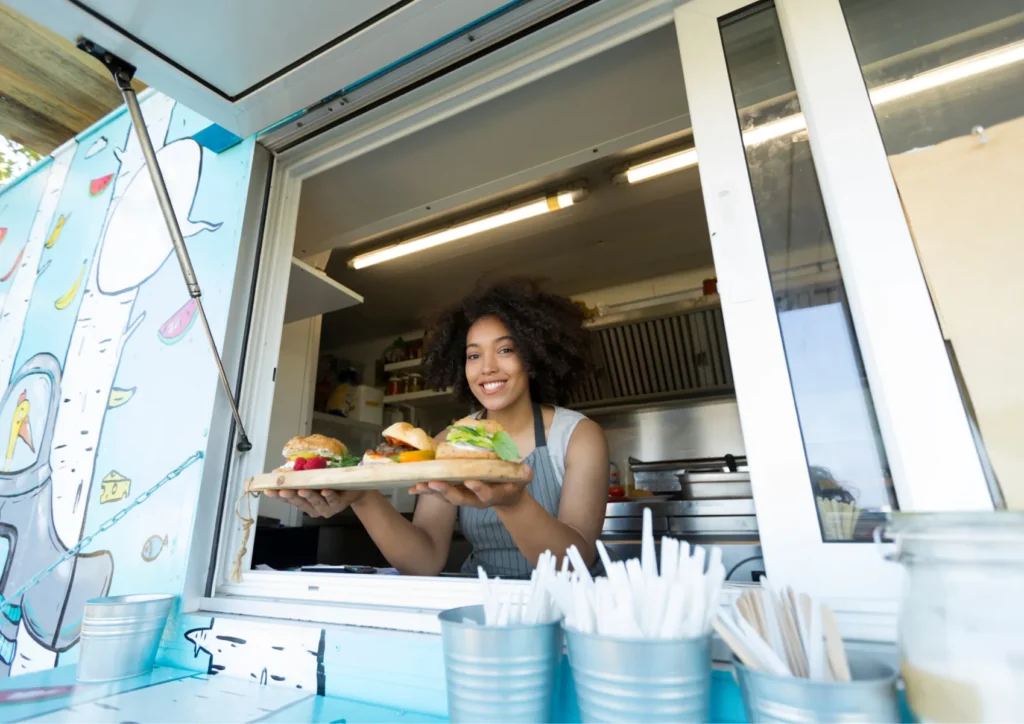The sun rises over South Africa, igniting the vibrant energy of the informal economy. A spaza shop owner in Soweto flips their “Open” sign, ready for the morning rush. A mobile vendor in Durban sets up their cart, displaying a colourful array of fresh produce.
An artisan in Cape Town meticulously arranges handcrafted jewellery, hoping for a day of strong sales. A craft seller in Johannesburg packs her stall, counting out her float and double-checking her stock.
These are the faces of South Africa’s entrepreneurial spirit – the backbone of our communities, turning every rand into an opportunity.
Whether it’s selling airtime, electricity, fresh produce, or unique crafts, these entrepreneurs must navigate a shared reality: managing cash transactions in a fast-paced environment.
Every transaction, every rand counts. Security is paramount – a lost or stolen day’s takings can be devastating. Keeping track of sales manually, reconciling cash at day’s end… it’s a time-consuming process.
“Time is money,” as the saying goes, and for these entrepreneurs, every second counts.
But here is the undeniable power of the informal sector:
- The informal economy is massive. More than 70% of South African households rely on the informal retail market, largely dominated by spaza shops, for their everyday needs. This sector is estimated to be worth a staggering R180 billion annually.
- Spaza shops are the heartbeat of communities. With over 150,000 spaza shops nationwide, 80% of the population visits them daily, accounting for roughly 40% of total annual food spend.
- Entrepreneurial activity fluctuates. In 2023, 11.1% of South Africans were involved in early-stage entrepreneurial activity (TEA) – a number that has seen both increases and dips in recent years, with some notable deterioration in the quality of SA’s entrepreneurial environment.
But remember, business survival is a battle. A sobering two-thirds of businesses fail within five years, and about 20% don’t even make it past year two. Lack of funding is often cited as a major growth inhibitor.
So…. How do you ensure growth in all this? You adapt. You diversify. And you do it virtually at the touch of a button. Mobile payment usage at POS in South Africa is steadily increasing. Are you missing out on sales by not accepting cards?
And if you’ve gone cashless already, are you maximising the potential of what that could do for your business?
Could you attract more customers by offering airtime and electricity? These are essential services that can drive foot traffic to your business.
Do you want to simplify your operations and reduce the risks associated with handling large amounts of cash? Going cashless can improve your security and streamline your bookkeeping.
Are you interested in expanding your product range to include popular services like gaming vouchers, entertainment subscriptions, and money transfers? R&A offers a wide variety of options to help you become a one-stop shop for your community.
Would having a direct line to reliable, 24/7 customer support give you peace of mind? Knowing you have expert help whenever you need it can make all the difference.
Whether you’re running a spaza shop that’s pumping from dawn till dusk, selling your crafts at weekend markets, or hustling on the go with a mobile business, we’ve got a POS system with your name on it.
R&A can help you unlock the hidden potential within your business. The mobile POS terminal market in South Africa is booming, with revenue projected to reach a staggering $411.9 million by 2030.
And with digital wallet users expected to hit 17.21 million by 2029, it’s clear that the future is cashless. Don’t get left behind!
We’re on a mission to create content that truly helps South African entrepreneurs like you succeed. To do that, we need your input!
Tell us in the comments: What are the biggest challenges you’re facing in today’s market? What do you wish you understood better about going cashless?
What kind of information would help you take your spaza shop, mobile business, or craft stall to the next level?
Talk to us – we’re listening.

